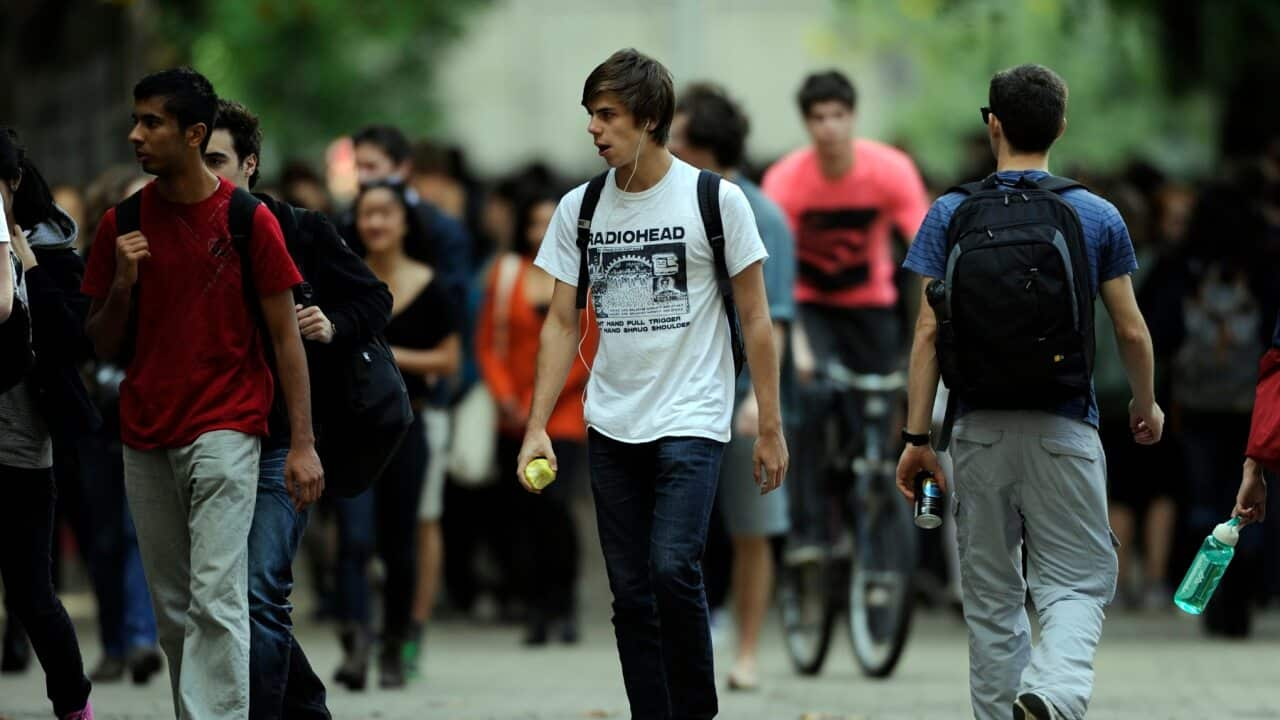Emma Nguyen runs Chao Catering in the Sydney suburb of Randwick with her sister Jessica and says they are turning away corporate orders due to a critical lack of specialised staff.
“We don't have the workforce or the capacity when we get enquiries for events on the weekend or at night, and all our staff are already busy, so we just have to say no,” she says.
“We are already catering for around 500 people every week, and we could do two or three times more with extra staff.”
Ms Nguyen is a qualified accountant who grew up in Vietnam. She migrated to Australia as a teenager to continue her studies.
The 39-year-old also owns I Love Pho, a Vietnamese restaurant in Sydney's Crows Nest, and says she is desperate to hire a qualified chef, a restaurant manager and other workers. “I was looking for front of house and kitchen staff. It's taken three months and I still haven't found the right ones,” she says.
“I was looking for front of house and kitchen staff. It's taken three months and I still haven't found the right ones,” she says.

Chefs with specialised skills are in demand. Source: SBS Sandra Fulloon
“Last week I hired two new people but it's a different level. They are more junior and I will have to train them.”
The shortage of skilled workers from overseas is impacting the entire Australian hospitality sector. More than 46,000 hospitality jobs are currently advertised online but industry leaders say the real shortage may be much higher.
“Our members are telling us there are up to 100,000 unfilled positions in the hospitality industry across the country,” says Wes Lambert, chief executive of national industry association Restaurant and Catering Australia (R&CA).  “Many businesses are no longer listing their positions because there simply are not enough qualified applicants.
“Many businesses are no longer listing their positions because there simply are not enough qualified applicants.

Restaurant and Catering Australia's Wes Lambert. Source: Supplied
“So many are forced to close for days and meal periods during the week at a time when they should be recovering.”
Alex Jiang, the owner of Sydney’s BoThai restaurant in Crows Nest, agrees.
“It's very hard to find staff. This year, if we post a job advertisement, you can wait a couple of weeks or even a month without any response,” he says.
“And even with a response, the standard [of skill] is lower than before.” Like Ms Nguyen, Mr Jiang says his team must work harder for longer hours to make up the shortfall.
Like Ms Nguyen, Mr Jiang says his team must work harder for longer hours to make up the shortfall.

Alex Jiang owns BoThai restaurant. Source: SBS Sandra Fulloon
“I [am forced to] work shifts myself, or else ask my relatives to help, and some are senior people working for me as kitchen staff.
“So we still can survive but without enough front of house staff the standard of service is lower than before.”
Mr Lambert says the shortages affect restaurants and cafes in every town, city, and region across Australia.
The problem is due, in part he says, to the exodus of temporary visa holders after the pandemic hit last year.
“There are around 600,000 fewer people in Australia than pre-COVID and around 227,000 of those people had the right to work.
“The highly skilled and trained workforce from other countries would fill positions like wok chefs, restaurant managers and sommeliers."
The hospitality industry also relies heavily on front of house workers from overseas, including students and working holidaymakers.
The federal government recently eased a 40-hour per fortnight cap on international students already working in the sector and added hospitality to the list of critical sectors for the purposes of a COVID-19 Pandemic Event Visa.
Many international students welcome the decision, says Oyuna Bordukh, a Sydney migration agent and director of Garuda Migration.
“It will help ease skills shortages in critical sectors by allowing temporary visa holders to remain in Australia to work. It targets only those ones whose visa has expired within the past 28 days or will expire in 90 days or less,” Ms Bordukh says.
“It's a wise decision because it will allow people who might otherwise have left to stay in Australia and contribute to the economic recovery."
While the R&CA also welcomes the move, Mr Lambert says more needs to be done.
“We have put a submission to the Immigration Minister for a COVID recovery workforce visa, which would then allow vaccinated, highly skilled workers to return to Australia.
“We need to get that highly skilled workforce here as soon as possible, and long before we open the borders to tourists.” Ms Nguyen hopes relief arrives soon.
Ms Nguyen hopes relief arrives soon.

Emma's catering business relies on specialised staff. Source: SBS David Ollier
“With a lot more customers and more catering, we are all working much harder than before," she says.
“It is stressful mentally in terms of managing the staff with the amount of customers and sales requests. But there are so many [skilled workers] overseas who want to come back here desperately. And they're just waiting and waiting.”











